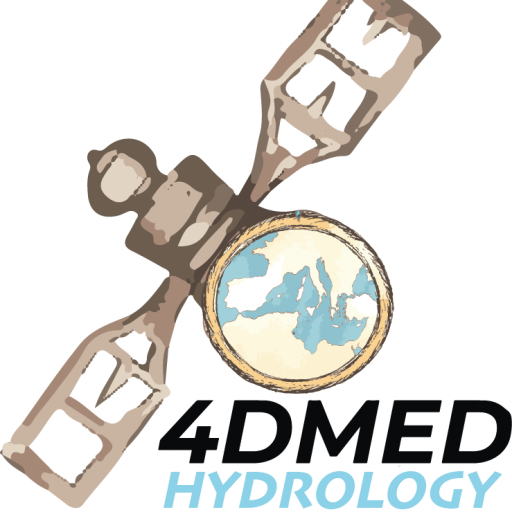
- Title: Developing an advanced, high-resolution, and consistent reconstruction of the Mediterranean terrestrial water cycle
- Period: January 2022 – December 2023
- Code: ESA Contract No. 4000136272/21/I-EF
- Website: https://www.4dmed-hydrology.org
-
Partners: The consortium is leaded by CNR-IRPI (Perugia, Italy) with the collaboration of 9 partners: Vienna University of Technology (TUWIEN, Austria), Ghent University (UGent, Belgium), CIMA Research Foundation (CIMA, Italy), ESTELLUS SAS (ESTELLUS, France), Observatori de l’Ebre (OBSEBRE, Spain), Katholieke Universiteit Leuven (KULeuven, Belgium), VANDERSAT B.V. (VANDERSAT, Nederland), EURAC Research – Accademia Europea di Bolzano (EURAC, Italy) and HydroSciences Montpellier (Institut de recherche pour le développement) (HSM, France).
Abstract:
4DMED-Hydrology aims at developing an advanced, high-resolution, and consistent reconstruction of the Mediterranean terrestrial water cycle by using the latest developments of Earth Observation (EO) data as those derived from the ESA-Copernicus missions. In particular, by exploiting previous ESA initiatives, 4DMED-Hydrology intends:
- to demonstrate how this EO capacity can help to describe the interactions between complex hydrological processes and anthropogenic pressure (often difficult to model) in synergy with model-based approaches;
- to exploit synergies among EO data to maximize the retrieval of information of the different water cycle components (i.e., precipitation, soil moisture, evaporation, runoff, river discharge) to provide an accurate representation of our environment and advanced fit-for-purpose decision support systems in a changing climate for a more resilient society.
4DMED-Hydrology will focus on four test areas, namely the Po river basin in Italy, the Ebro River basin in Spain, the Hérault River basin in France and the Medjerda River basin in Tunisia, which are representatives of climates, topographic complexity, land use, human activities and hydrometeorological hazards of the Mediterranean Region (MR). The developed products will be then extended to the entire region. The resulting EO-based products (i.e., experimental datasets, EO products) will be made available in an Open Science catalogue hosted and operated by ESA.

